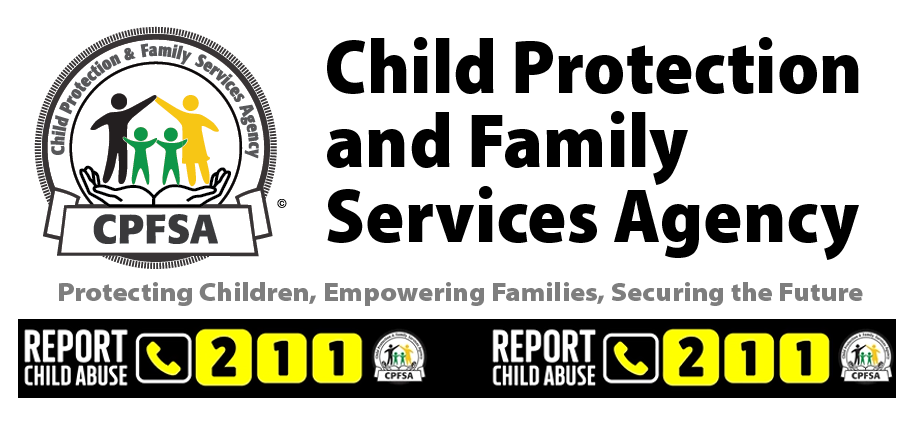Foster Care
- What is Foster Care?
- Foster care is a process that places a child in the care of a person or couple who are not the biological parents of the child, to enable them to raise that child and provide a nurturing environment for his or her physical, spiritual and emotional growth and development
- Foster Care is aimed at providing a safe family haven for children under 18 years who have become wards of the state as a result of being abused, orphaned, abandoned, neglected or because of the inability of parents, relatives or guardians to care for them.
- When/how does a child enter foster care?
- Any child in the care of the Child Protection and Family Services Agency (CPFSA) on a fit person order can be eligible for foster care, and may be released to the care of a person(s) capable of protecting the child and providing fully for his/her welfare.
- How is foster care different from adoption?
- The government or state retains parental rights and responsibility for a child in foster care. Adoption confers/passes on all parental rights and responsibilities a biological parent would have to the adoptive parents.
- How can an adult foster/ How do you apply to the foster care programme?
- Qualified adults can make an application to be a part of the programme by filling out the required forms and providing the data and documents required to any CPFSA office islandwide.
- What do you need to qualify for the programme?
- – A police record
- – Be an adult of good moral character and legal standing
- – Be between the ages of 25 and 65*
- – Be gainfully employed with a stable, legitimate source of income
- – Having suitable accommodation for a child
- What does the application process entail?
- A prospective foster parent:
- – Must be willing to undergo a medical examination
- – Must provide two (2) persons who can comment on their suitability and readiness to receive and care for a child
- – Must be prepared to undergo a period of training in raising and caring for a child.
- – Must satisfy the expectations of the CPFSA in promoting the child’s growth and development.
- – Must allow a Children’s Officer to conduct a home visit to assess the environment in which the child will be residing. This includes interviews with the applicant(s) and members of the household.
- – May communicate to the Children’s Officer your own expectations of the CPFSA.
- What support does the government provide to foster parents?
- The state offers a monthly allowance for each foster child, as well as fees for clothing, books, school fees and medical bills where necessary.
- What support does the CPFSA provide to foster parents?
- Children’s Officers are required to supervise foster care placements and conduct regular home visits to assess the welfare of the child. The agency also provides counseling and referrals to other service partners as needed.
- Can a foster parent discipline/beat a foster child?
- Children in state care cannot be spanked, beaten, slapped or have any other form of corporal punishment administered. Discipline should be promoted by a reward system, and where punishment is necessary one of the following methods shall be used such as forfeiture of rewards and privileges (including pocket money) or temporary loss of recreation.
- How long is the process to foster a child?
- From submission of documents, the process of fostering a child should take approximately eight (8) weeks. This may vary because of several factors i.e. the availability of children, the compatibility of the match made.
- How long does foster care last?
- Foster care is meant as a temporary therapeutic environment for a child’s upbringing. However, foster parents may maintain a child in their home until they are eighteen (18) years old, or beyond. There are instances where parents or family members of the child(ren) may experience changes in their financial or personal circumstances and the child may be considered for family re-integration.
- Do you need to have money to foster a child?
- Being financially stable is important, however, there are other equally important criteria of assessing a person’s suitability and qualification for the programme.
- What happens when a foster child turns 18, does the GoJ./CPFSA still provide support to the foster family?
- The state has full responsibility for wards until they are eighteen (18) years old, at which point monthly allowances to the family for the care of the child ceases. The CPFSA will however give consideration to providing further assistance through a special committee. Assessment for assistance is done on a case by case basis.
